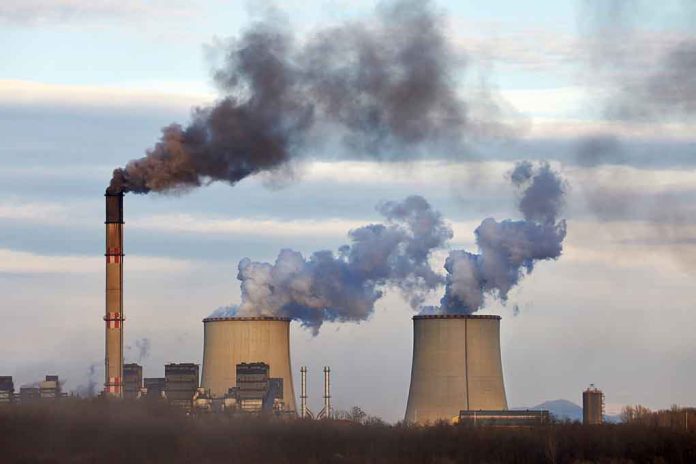
House Republicans are pushing to resurrect the disbanded National Coal Council, challenging years of Democrat climate policies by championing clean coal as critical to American energy security and economic prosperity.
Key Takeaways
- The House Energy and Commerce Committee is advancing legislation to revive the National Coal Council, which was disbanded when the Biden administration allowed its charter to lapse in 2021.
- Republican lawmakers from coal-producing states are leading the initiative to support the coal industry, citing energy security, job creation, and economic growth as primary motivations.
- The revival effort aligns with President Trump’s Executive Order 14241 on clean coal and aims to meet rising electricity demands, especially for AI data centers.
- Proponents argue coal remains essential for American energy independence, grid security, and maintaining domestic manufacturing capabilities.
- The legislation positions coal as a national security asset amid global energy uncertainties, particularly in the Middle East.
Resurrecting a Key Coal Advisory Body
The House Energy and Commerce Committee is taking decisive steps to revitalize America’s coal industry by reestablishing the National Coal Council. This crucial advisory body, originally formed in the 1980s, provided federal guidance on coal market and technology developments for decades until its dissolution in 2021. The Biden administration effectively eliminated the council by simply allowing its charter to expire, a move that reflected Democrats’ broader agenda to phase out fossil fuels in favor of renewable energy sources.
Representatives Michael Rulli and Riley Moore are spearheading this legislative effort to counteract the previous administration’s anti-coal policies. The National Coal Council historically served as a vital link between the coal industry and federal policymakers, offering expertise on how to maximize America’s abundant coal resources while addressing environmental concerns through technological innovation. Its revival represents a significant shift back toward an all-of-the-above energy strategy that recognizes coal’s continued importance to American energy security.
Energy Security as National Security
The push to revive clean coal comes amid growing concerns about America’s energy vulnerability. Advocates of the legislation emphasize that true energy security is inseparable from national security, particularly as Middle East conflicts threaten global energy supplies. By strengthening domestic coal production capabilities, Republicans argue the United States can reduce dependence on foreign energy sources while ensuring reliable power generation during critical times of need or international instability.
The legislation directly supports President Trump’s Executive Order 14241, which promotes clean coal technologies as part of a comprehensive American energy strategy. With electricity demands rising dramatically due to the proliferation of AI data centers and increased electrification across multiple sectors, coal’s reliability as a baseload power source becomes increasingly valuable. Proponents contend that prematurely abandoning coal would leave America vulnerable to energy shortfalls and price volatility that could undermine economic stability.
Economic Benefits for Coal Communities
Beyond energy security concerns, the revival of the National Coal Council represents a lifeline for communities in Kentucky, Ohio, West Virginia, and other coal-producing states. These regions have suffered severe economic hardship as coal mining operations closed under the weight of regulatory pressures and market challenges. By supporting clean coal technology development and usage, Republicans aim to preserve existing jobs while creating new opportunities in modern coal processing, carbon capture, and related industries.
The legislation’s supporters point to coal’s role in bolstering domestic manufacturing and strengthening American supply chains. Coal remains an essential input for steel production and other heavy industrial processes that form the backbone of American manufacturing capability. As global supply chain vulnerabilities have been exposed in recent years, the strategic value of maintaining domestic coal production has become increasingly apparent to policymakers concerned with America’s industrial self-sufficiency.
Defending Against Climate Policies
This legislative push directly challenges the premise that coal must be eliminated to address climate concerns. Instead, Republicans are positioning clean coal technologies as a solution that balances environmental stewardship with economic pragmatism. Advanced coal technologies, including carbon capture and storage, high-efficiency combustion systems, and coal-to-hydrogen conversion, offer pathways to utilize America’s vast coal reserves while reducing environmental impacts.
The bill effectively serves as a defense against policies designed to eliminate coal from America’s energy mix without considering the economic and security implications. By reestablishing the National Coal Council, lawmakers aim to ensure that coal industry expertise informs federal energy policies rather than allowing ideologically-driven climate agendas to dictate America’s energy future. This approach recognizes that true energy resilience requires maintaining diverse generation sources, including cleaner versions of traditional fuels alongside renewable alternatives.



